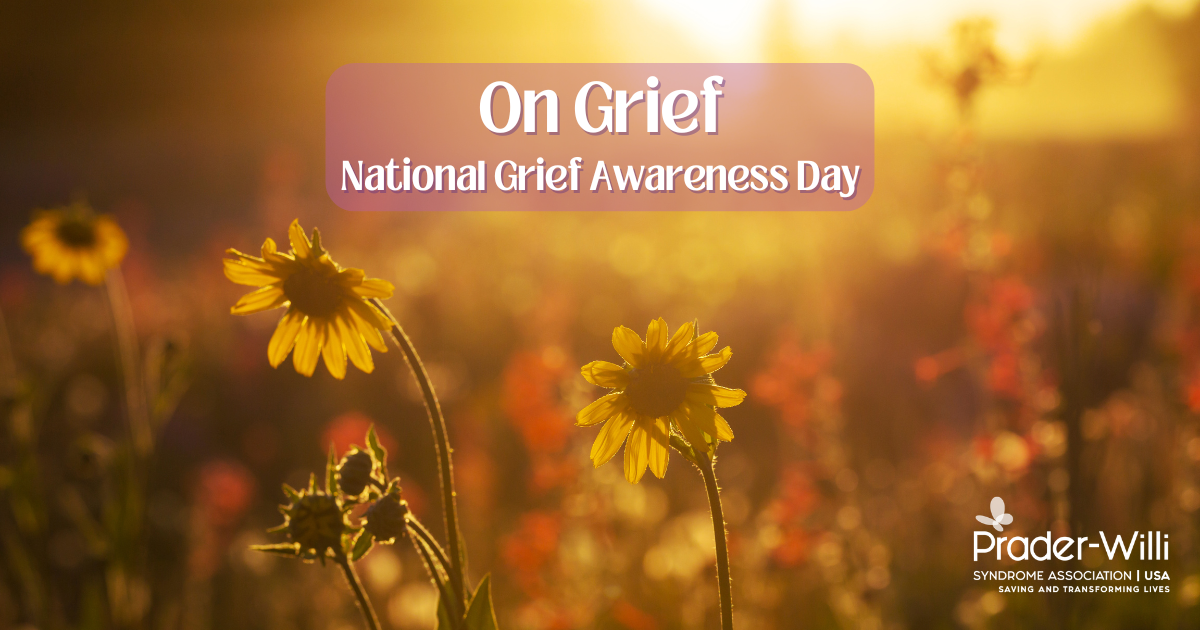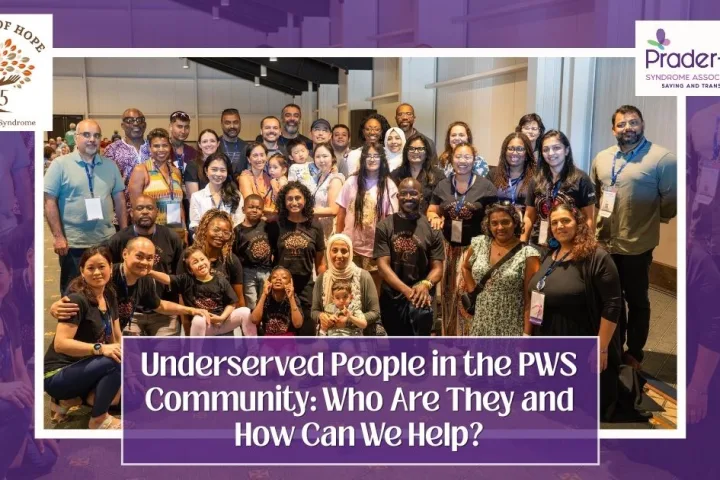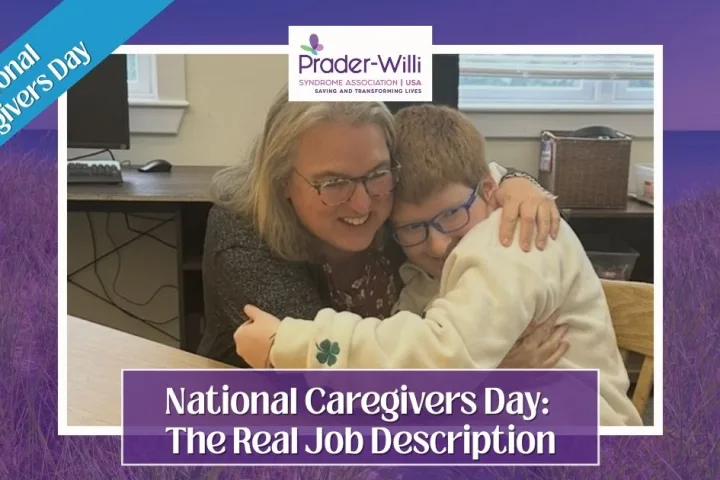Contributed by Anne Fricke
Trauma. Sometimes we don’t notice it in the moment.
We are in the midst of the battle with our weapons ready, and it is only after we have grown accustomed to the fight that the battle rage starts to dissipate, the hum of adrenaline gives way to bird song, and our tunnel vision expands to our surroundings. We can then begin to assess the damage and take note of those lying around us.
Perhaps they are our friends that we have lost touch with, our spouse or partner with whom we could not connect or reach during the chaos, or our children who so desperately needed something during the fight that we could not give.
Now we must push the grief aside and extend our hands to those fallen, pick up the pieces, and figure out how to put it all back together so we can move forward.
The grief is still there; the trauma resides in us. This is why I am not able to sit through an IEP meeting or speak about Freya’s disorder, without, at some point, contending with my tears. This is why, when I see a mom with a child who is struggling, I want to stand by her, smile at them both, and offer whatever love and strength they will accept.
People say to me, ‘but Freya is doing great right, she’s moving along.’ Yes, Freya is doing wonderfully. She is strong and healthy, sociable, and happy. But I have an awareness of what the future may bring.
Sometimes the future can look very daunting.
I am also full of hope for our daughter, for the many beautiful things she brings to our family and our community of friends, the laughter, the love, the lessons. I am hopeful for the advancements of medicinal treatments and therapies. I am optimistic in Freya’s determination, and I am hopeful in the strength of my family’s bond.
Still, there is inside of me the mom whose stomach clenches every time I see a peer turn away from her. My mind spins when she starts getting upset and I fear logic and comfort will not reach her. In me still is the mom who could feel her lethargic baby in her arms.
That is a panic and a pain I will never forget. Those moments, that fear and suffering, will always be with me.
But it has been liberating to realize that it is NOT my work to get over the grief. The intention is not to deny those moments or to move past them into some false resolution.
Grief is a cycle, a process we work through with the awareness of its’ phases, the understanding that we will see them again. Those moments of fear and trauma are as much a part of me as the moment she started crawling for the first time, the way she laughed as a baby, or the first of her smiles that showed me she was making connections and bonds with the family around her.
So, where does that leave me?
As a wounded person who will never again understand or feel complete joy, one free from the stresses and sad consequences of life?
Or a woman who knows how to love, how to find the broken pieces and put them together in a way that is both joyful and beautiful, with a healthy recognition of the grief that I carry with me?
It is not a bad thing, this grief. It is a motivator for connecting with other mothers and families, a guide for compassion and understanding; it carries me across thresholds to a newer appreciation for the little joys in life.
At times, it brings me to my knees — not in defeat, but in gratitude and appreciation for the woman who is now stronger than she ever has been.
Are you struggling with grief?
PWSA | USA GRIEF COUNSELING AVAILABLE
Grief can occur with any loss and grieving is a necessary step in the healing process. PWSA | USA offers grief support to individuals diagnosed with PWS and to parents, family members, and caregivers who may be dealing with any type of grief. If you are interested in receiving grief counseling, please give us a call at 941.312.0400.
Read More:
Share this!





 Perry A. Zirkel has written more than 1,500 publications on various aspects of school law, with an emphasis on legal issues in special education. He writes a regular column for NAESP’s Principal magazine and NASP’s Communiqué newsletter, and he did so previously for Phi Delta Kappan and Teaching Exceptional Children.
Perry A. Zirkel has written more than 1,500 publications on various aspects of school law, with an emphasis on legal issues in special education. He writes a regular column for NAESP’s Principal magazine and NASP’s Communiqué newsletter, and he did so previously for Phi Delta Kappan and Teaching Exceptional Children. Jennifer Bolander has been serving as a Special Education Specialist for PWSA (USA) since October of 2015. She is a graduate of John Carroll University and lives in Ohio with her husband Brad and daughters Kate (17), and Sophia (13) who was born with PWS.
Jennifer Bolander has been serving as a Special Education Specialist for PWSA (USA) since October of 2015. She is a graduate of John Carroll University and lives in Ohio with her husband Brad and daughters Kate (17), and Sophia (13) who was born with PWS. Dr. Amy McTighe is the PWS Program Manager and Inpatient Teacher at the Center for Prader-Willi Syndrome at the Children’s Institute of Pittsburgh. She graduated from Duquesne University receiving her Bachelor’s and Master’s degree in Education with a focus on elementary education, special education, and language arts.
Dr. Amy McTighe is the PWS Program Manager and Inpatient Teacher at the Center for Prader-Willi Syndrome at the Children’s Institute of Pittsburgh. She graduated from Duquesne University receiving her Bachelor’s and Master’s degree in Education with a focus on elementary education, special education, and language arts. Evan has worked with the Prader-Willi Syndrome Association (USA) since 2007 primarily as a Crisis Intervention and Family Support Counselor. Evans works with parents and schools to foster strong collaborative relationships and appropriate educational environments for students with PWS.
Evan has worked with the Prader-Willi Syndrome Association (USA) since 2007 primarily as a Crisis Intervention and Family Support Counselor. Evans works with parents and schools to foster strong collaborative relationships and appropriate educational environments for students with PWS. Staci Zimmerman works for Prader-Willi Syndrome Association of Colorado as an Individualized Education Program (IEP) consultant. Staci collaborates with the PWS multi-disciplinary clinic at the Children’s Hospital in Denver supporting families and school districts around the United States with their child’s Individual Educational Plan.
Staci Zimmerman works for Prader-Willi Syndrome Association of Colorado as an Individualized Education Program (IEP) consultant. Staci collaborates with the PWS multi-disciplinary clinic at the Children’s Hospital in Denver supporting families and school districts around the United States with their child’s Individual Educational Plan. Founded in 2001, SDLC is a non-profit legal services organization dedicated to protecting and advancing the legal rights of people with disabilities throughout the South. It partners with the Southern Poverty Law Center, Protection and Advocacy (P&A) programs, Legal Services Corporations (LSC) and disability organizations on major, systemic disability rights issues involving the Individuals with Disabilities Education Act (IDEA), Americans with Disabilities Act (ADA), and the federal Medicaid Act. Recently in November 2014, Jim retired.
Founded in 2001, SDLC is a non-profit legal services organization dedicated to protecting and advancing the legal rights of people with disabilities throughout the South. It partners with the Southern Poverty Law Center, Protection and Advocacy (P&A) programs, Legal Services Corporations (LSC) and disability organizations on major, systemic disability rights issues involving the Individuals with Disabilities Education Act (IDEA), Americans with Disabilities Act (ADA), and the federal Medicaid Act. Recently in November 2014, Jim retired.